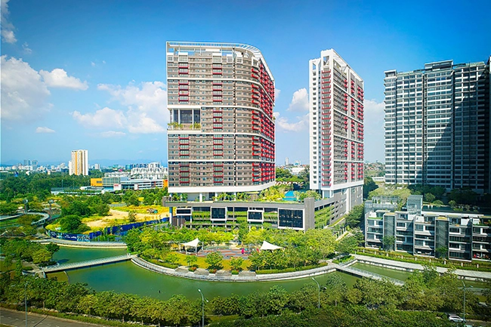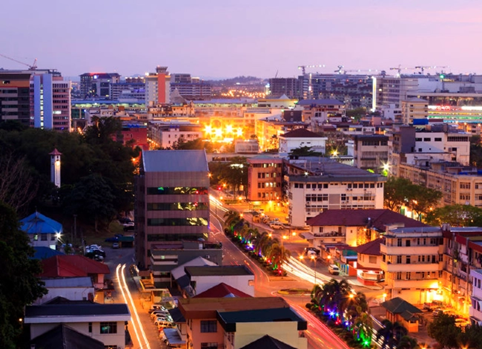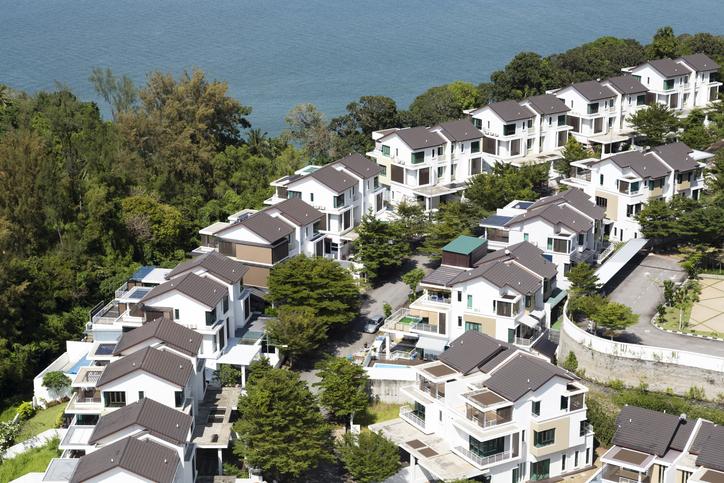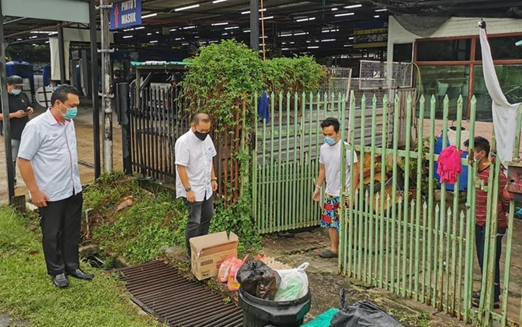The three-month tax holiday that is currently being enjoyed by Malaysians since its introduction on June 1, has not been contributing significantly to the growth of the property sector as it has on other businesses.
While traders in various businesses thrived - especially the automotive sector that saw a 21.9% growth in loan approvals for the purchase of passenger cars in June - not much growth has been reported for loans applied and approved for residential properties during the period.
As it is, Laurelcap Sdn Bhd valuer Kit Au Yong said while houses are among the items exempted from the Goods and Services Tax (GST), comparing the growth with the last two months would also not result in a fair evaluation.
He said the period between May and June is not good for comparison, as May was the election month which halted many transactions and activities in the property sector.
"Real estate is a large-ticket item and market demand is not as elastic compared to automotive where consumers respond immediately to it.
"The lesser reaction from the consumers is also probably due to where the market is heading in terms of prices" Kit told The Malaysian Reserve.
He added that GST only affected the property market indirectly via building materials and services, and not from the residential land price which comprises a significant part in a residential project's development cost.
According to Bank Negara Malaysia's June data, the number of loans applied for residential units in the month was RM19.26 billion, posting a marginal growth from RM18.74 billion recorded in May.
The loans approved for residential units for the month also increased marginally from RM8.13 billion in May to RM8.37 billion in June.
VPC Alliance (KL) Sdn Bhd MD James Wong said the mismatched situation has remained the main challenge in the property market.
"There is a mismatch between what the developers have built and what the market demands as developers had concentrated on middle-income and high-income houses in the past while neglecting affordable housing for the lower middle-income group. "There is oversupply" he said.
Wong said although many developers are offering big discounts for even completed projects, potential purchasers are still unable to afford those houses while facing the possibility of loan rejections.
He said over the years, salaries have not increased as fast as the rising residential house prices and that has resulted in an affordability issue.
The loan applications for non-residential properties in June, however, improved 13.4% to RM8.45 billion from RM7.45 billion.
PPC International Sdn Bhd MD Datuk Siders Sittampalam said the property market, particularly the commercial segment, is facing issues bigger than the GST rate.
"GST is not the main issue in the commercial property market, but still in the mismatch of demand and supply - especially in the Klang Valley. Until most units are taken up, the price will not go down and there will be less demand in the market.
"Moving forward, the Malaysian property market is bound to see improvement but very marginal as it is still settling down" Siders said.
The June 2018 banking statistics published by the central bank showed record highs for private car purchases.
Loans applied for private car purchases rose to RM8.7 billion during the GST-free month of June this year, the highest level since RM11 billion recorded in July 2013.
Total loans approved by the country's banking system for private car purchases reached RM5.2 billion for June 2018, estimated to be a record high as the central bank's data only showed figures up to 2006.
The banking system approved total loans of RM35.1 billion, while the country's total lending from the banking system stood at RM1.62 trillion, RM12 billion more than the month before.
Meanwhile, the retail sector is also expected to benefit from the three-month tax holiday.
Retail Group Malaysia has adjusted the second quarter of 2018 (2Q18) retail growth rate from 3.7% estimated in March 2018, to 6.3% for June 2018 in conjunction with the Hari Raya celebration, along with the tax holiday period.
The retail sales growth rate for 3Q18 has also been revised from 5.2% estimated in March 2018 to 6.8%, following the remaining two months of the tax break.
For 4Q18, the retail growth rate has been revised downwards from 5% estimated in March 2018 to 3.5%, to reflect higher consumers' spending during the three-month tax break.
Based on the latest quarterly adjustments, the projected retail sales growth rate of the Malaysian retail industry in 2018 has also been revised upwards from 4.7% estimated in March 2018 to 5.3%.
.jpeg)










.jpeg)
